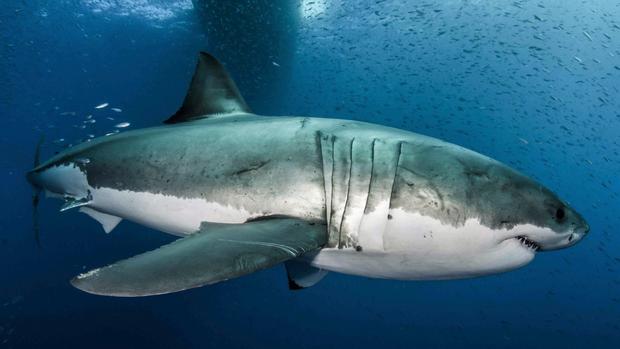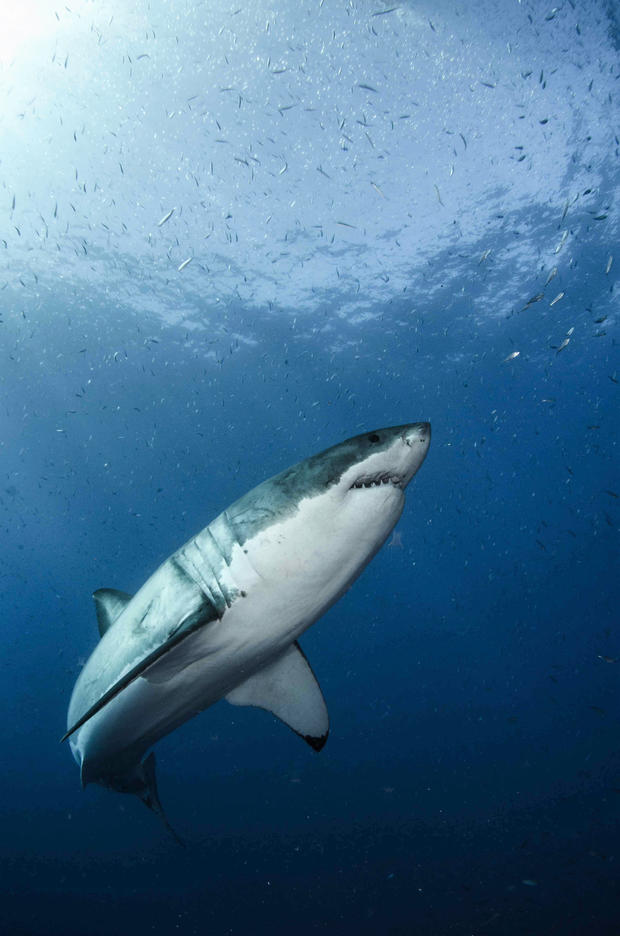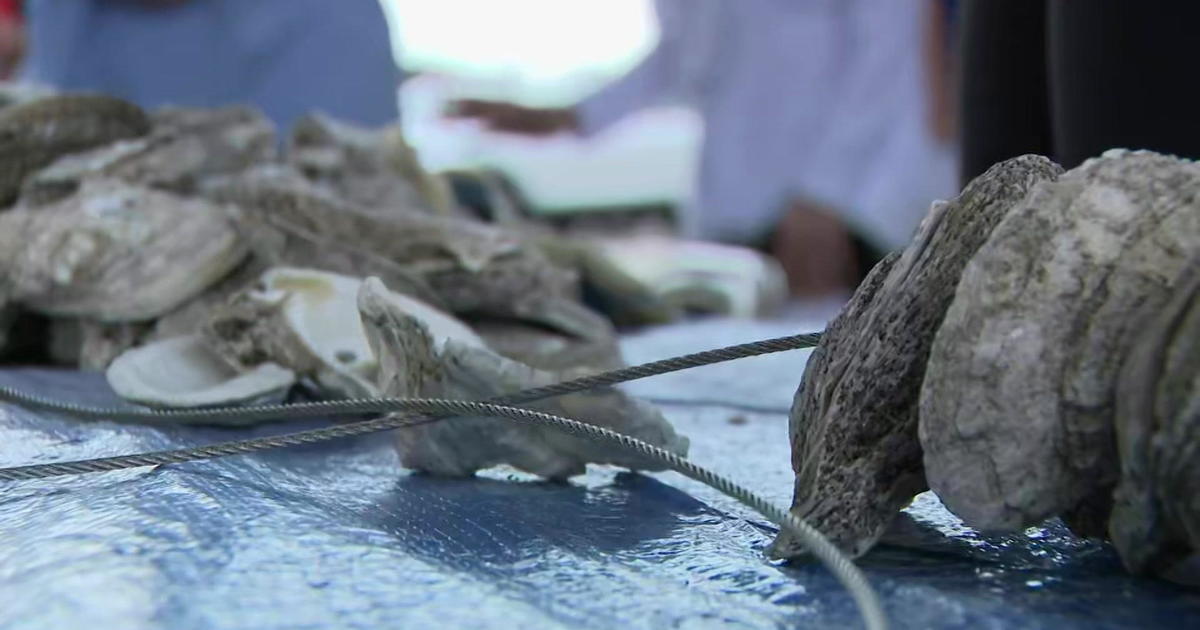Florida Scientists Help Decode Great White Shark Genome Revealing Clues To Living Longer and Cancer Resistance
Follow CBSMIAMI.COM: Facebook | Twitter
FORT LAUDERDALE/DAVIE (CBSMiami) – The great white shark is often portrayed as a super-villain of the deep blue sea but the iconic apex predator may actually hold the key to some amazing health feats.
An international team led by scientists from Nova Southeastern University in Davie, along with Cornell University and Monterey Bay Aquarium, has sequenced the entire genome of the great white shark, and compared it to genomes from a variety of other vertebrates, including the giant whale shark and humans.
The decoded genome reveals clues as to how great white sharks are so good at healing wounds and resisting cancer.
One major highlight of the decoded genome, which is one and a half times larger than that of humans, is that sequence changes were found tied to DNA repair, DNA damage response and DNA damage tolerance. The opposite phenomenon, genome instability, which results from accumulated DNA damage, is known to predispose humans to numerous cancers and age-related diseases.
The study was published online on Feb. 18 in the journal Proceedings of the National Academy of Sciences.
"Genome instability is a very important issue in many serious human diseases; now we find that nature has developed clever strategies to maintain the stability of genomes in these large-bodied, long-lived sharks," said Mahmood Shivji, Ph.D., director of NSU's Save Our Seas Foundation Shark Research Center and Guy Harvey Research Institute. "There's still so much to be learned from these evolutionary marvels, including information that will potentially be useful to fight cancer and age-related diseases, and improve wound healing treatments in humans, as we uncover how these animals do it."
Decoding the white shark's genome revealed not only its huge size but also numerous genetic changes that could be behind the evolutionary success of large-bodied and long-lived sharks.
Also notable was that the white shark genome contained a very high number of "jumping genes" or transposons, and in this case a specific type, known as LINEs. In fact this is one of the highest proportions of LINEs (nearly 30%) discovered in vertebrates so far.
"These LINEs are known to cause genome instability by creating double stranded breaks in DNA," said Michael Stanhope, Ph.D., of Cornell University College of Veterinary Medicine. "It's plausible that this proliferation of LINEs in the white shark genome could represent a strong selective agent for the evolution of efficient DNA repair mechanisms, and is reflected in the positive selection and enrichment of so many genome stability genes."
The discovery that the whale shark also had these key genome stability adaptations was significant because theoretically, the risk of developing cancer should increase with both the number of cells (large bodies) and an organism's lifespan - there is statistical support for a positive relationship of body size and cancer risk within a species. Interestingly, this does not tend to hold up across species.
Contrary to expectations, very large-bodied animals do not get cancer more often than humans, suggesting they have evolved superior cancer-protective abilities. The genetic innovations discovered in genome stability genes in the white and whale shark could be adaptations facilitating the evolution of their large bodies and long lifespans.
"Decoding the white shark genome is providing science with a new set of keys to unlock lingering mysteries about these feared and misunderstood predators - why sharks have thrived for some 500 million years, longer than almost any vertebrate on earth," said Dr. Salvador Jorgensen, a Senior Research Scientist at the Monterey Bay Aquarium, who co-authored the study.
But the innovations did not end there.
The shark genomes revealed other intriguing evolutionary adaptations in genes linked to wound healing pathways. Sharks are known for their impressively rapid wound healing.
"We found positive selection and gene content enrichments involving several genes tied to some of the most fundamental pathways in wound healing, including in a key blood-clotting gene," said Stanhope. "These adaptations involving wound healing genes may underlie the vaunted ability of sharks to heal efficiently from even large wounds."
The researchers say they have just explored the "tip of the iceberg" with respect to the white shark genome.
"Genome instability is a very important issue in many serious human diseases; now we find that nature has developed clever strategies to maintain the stability of genomes in these large-bodied, long-lived sharks," said Shivji. "There's still tons to be learned from these evolutionary marvels, including information that will potentially be useful to fight cancer and age-related diseases, and improve wound healing treatments in humans, as we uncover how these animals do it."
Decoding the white shark genome will also assist with the conservation of this and related sharks, many of which have rapidly declining populations due to overfishing," said Steven O'Brien, a conservation geneticist at NSU, who co-conceived this study. "The genome data will be a great asset for understanding white shark population dynamics to better conserve this amazing species that has captured the imagination of so many."





